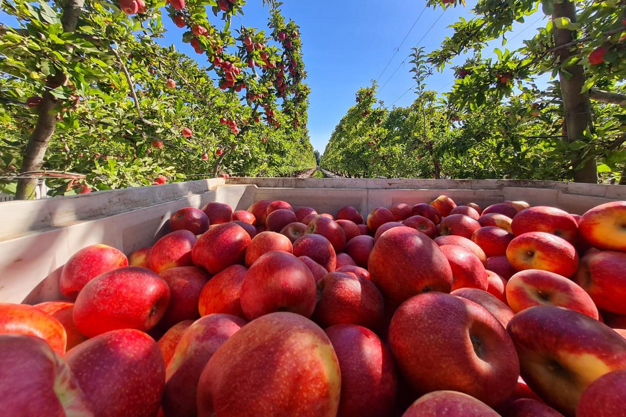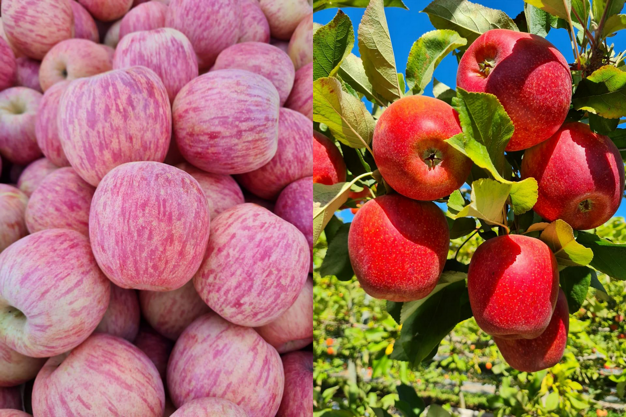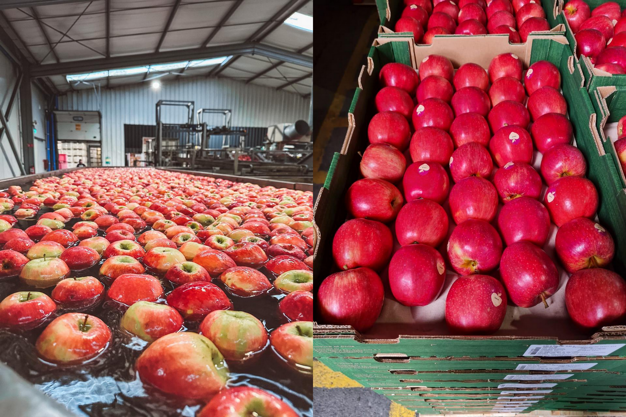The European apple market demands high-quality fruits in excellent condition, but its demands for certification and residues are becoming increasingly more challenging.
"For years, apple hectares in Chile have been in decline. However, this could change in the coming years, mainly due to the growth and consolidation of Latin America as a market with good returns. That, together with the saturation of cherry consumption in China, is reducing the attractiveness of new cherry plantations and generating the need to look for alternative crops," stated Adolfo Errázuriz, San Clemente's Export Manager for Europe.

The company, a fresh fruit exporter from Chile, sells apples in various international markets. It also exports organic cherries, grapes, citrus, and blueberries from Peru and avocados from Colombia.
"We are apple growers at heart. We have 13 apple varieties. Gala, Pink Lady, and Fuji are the main ones, but the future lies in new varieties. The challenge is to look for the commercial windows to market them, as these are getting narrower by the day because of the large production volumes in the US and with Europe increasingly lengthening its domestic apple season," Errázuriz stated.

San Clemente exported approximately 2,800,000 boxes of apples in 2024 and foresees a 10% growth in 2025. In 2024, it sent 40% of the apple to Europe, supplying the main European retailers, such as Lidl, Aldi, Tesco, Albert Heijn, Edeka, and several others.
"Last season's apple prices were very good in terms of return for producers, exceeding the sector's expectations and estimates. This season, sales prices at destination are expected to remain similar to last year. However, two factors could affect profitability: the exchange rate, as the euro and the pound have lost value against the dollar impacting the exporters' final income, and the increase in freight rates, which have registered a 20-25% increase in logistics costs, reducing profit margins for producers," Errazuriz said.

One of the company's biggest challenges is adapting to new certifications. "Europe imposes strict environmental and labor requirements, and the company is being audited for LEAF (Linking Environment and Farming) certification, which assesses its carbon footprint and responsible use of resources. We are pioneers in this process and believe it will make a difference in the European market. Currently, UK retailers such as Tesco and Asda already require it or will start to do so in 2025, while in Europe, Albert Heijn (Netherlands) has shown interest in adopting it," he stated.
The sector faces logistics difficulties due to the shortage of containers, a problem aggravated by the increase in cherry exports to China. "South America is short of containers, which could lead to delays if we don't make plans in advance," he warned.
"We believe that apples will once again gain space in Chile. With the cherry market facing difficulties, there could be a return to more stable crops," Errázuriz concluded.
 For more information:
For more information:
Adolfo Errázuriz
San Clemente
Chile
Tel: +56 9 68493920
Email: aerrazuriz@sclem.cl
www.sclem.cl
